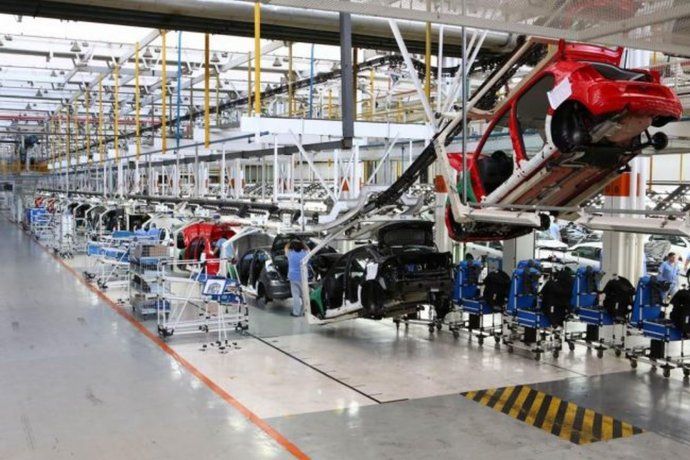A fundamental aspect of the Bases law is the Incentive Regime for Large Investments (RIGI)which establishes benefits to accelerate investment decision making for projects over $200 million.
The RIGI proposed by the Government in the Bases law seeks to generate “legal security” through tax and fiscal incentives for disbursements that exceed US$200 million in different sectors. But the controversy arises in that an article was also introduced that provides for the invalidity of any other pre-existing rule that is contrary to the benefits and exemptions created by the RIGI.
This is made explicit in article 162 of the Bases Law, which establishes that “without prejudice to the legitimate exercise of local jurisdictions and powers, any national norm or de facto means by which it limits, restricts, violates, hinders or distorts the established in this Title, will be absolutely null and void and the federal Justice must, immediately, prevent its application.”
Those who question the rule explain that it would be a possible violation of provincial powers and a violation of the division of powers. This is because the Justice Department would be empowered to modify or not apply existing and previously sanctioned regulations.
What does the RIGI establish?
The RIGI, among other points, establishes tax benefits that cover national and provincial taxes. In effect, article 187 provides that imports for consumption of merchandise or temporary goods from firms adhering to the regime will be exempt from import duties, the PAIS tax, statistical tax (of national jurisdiction) and “from any regime of collection, collection, advance or withholding of national and/or local taxes.”
This includes everything from municipal taxes to the real estate tax or the questioned Gross Income tax, collected provincially.
The RIGI, included in the text of the draft Base Law that the Government sent to Congress, establishes different tax, customs and exchange benefits.
Women industry.jpg
Among them, it contemplates the exemption of import duties and statistical tax for the entry of capital goods, spare parts and components destined for new projects.
Likewise, it allows beneficiaries to freely dispose of 20% of the foreign exchange generated by their exports after the first year, 40% in the second year and 100% from the third.
Industrialists criticize the RIGI
The industrial sector also questioned the measure. The president of the Association of Metallurgical Industrialists of the Argentine Republic (ADIMRA), Elio Del Re, warned that the Incentive Regime for Large Investments (RIGI) included in the Base Law “could generate unfair competition with the pre-existing industry.”
In that sense, he noted that “if the product in the United States is worth a million dollars and in Argentina it is worth the same, it would cost the person who buys it 30 percent less to buy it abroad.” “We are not talking about competitiveness, we are talking about incentives,” Del Re stressed.
Del Re stressed that national manufacturers will have unequal conditions “since they must face considerable import costs that generate asymmetries, between 15% and 35% of the total value of the goods.”
Likewise, he stated that the RIGI “does not identify activities, products or sectors with the possibility of being promoted, nor does it foresee any type of item that prioritizes the development of local suppliers that enhance the local productive network.”
Car industry.jpg

In this framework, ADIMRA sent a letter last Monday to the Minister of Economy, Luis Caputo, and to the parliamentary authorities to warn them about the impact that the approval of the Regime would have on the sector, a request for the project to be reviewed and in which It is warned that, as stated in its latest version, “it directly attacks the national industry and SMEs, to the benefit of large companies and imports.”
It is pointed out that “the conditions of competition of national manufacturers are not equalized compared to international industrial complexes, since the holders of single-project vehicle projects (the beneficiaries of the regime) will be able to import used or new capital goods.” , materials and inputs without associated tariffs both in the initial investment stage, as well as the productive flow during the established period (30 years), directly affecting the national metallurgical industry in general and especially SMEs.”
The president of ADIMRA stressed that “during the entire productive flow of the next 30 years, companies that enter the regime will not pay any type of tax, both on what they buy abroad as well as on what they export, configuring a sum of extraordinary benefits compared to those companies that have already made investments”.
Likewise, Del Re maintained that “the generous fiscal and regulatory benefits established are not accompanied by obligations on the part of the beneficiaries that generate spillovers on the productive system as a whole, also threatening the macroeconomic sustainability of the country.”
Last week, the Metallurgical Activity Report was released, which revealed a 17.7 percent year-on-year drop in March, configuring a decline of 6.6 percent in the first quarter.
In addition, it confirmed the low level of activity recorded only surpassed, in the last eight years, by the four hardest months of the 2020 pandemic.
Source: Ambito




